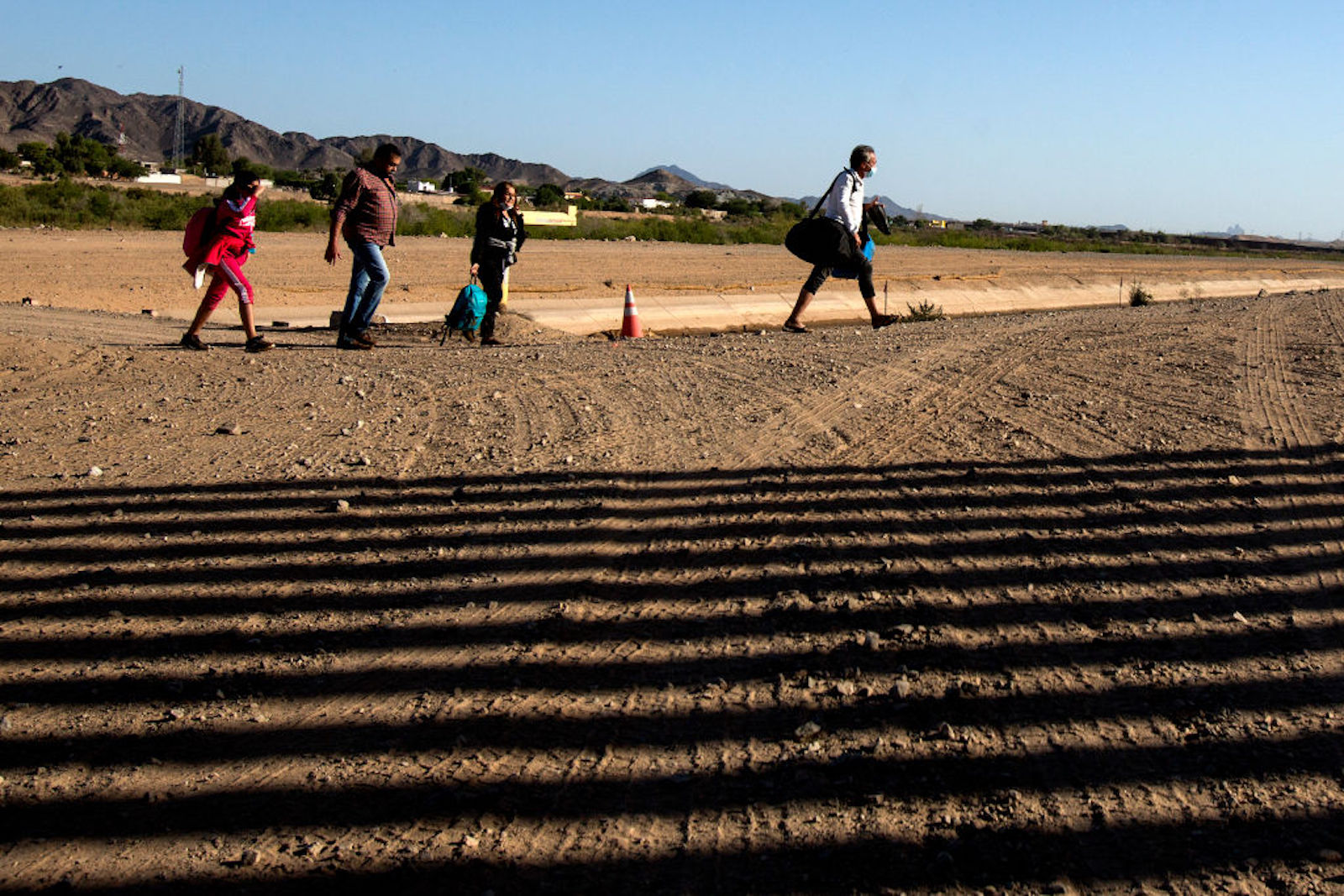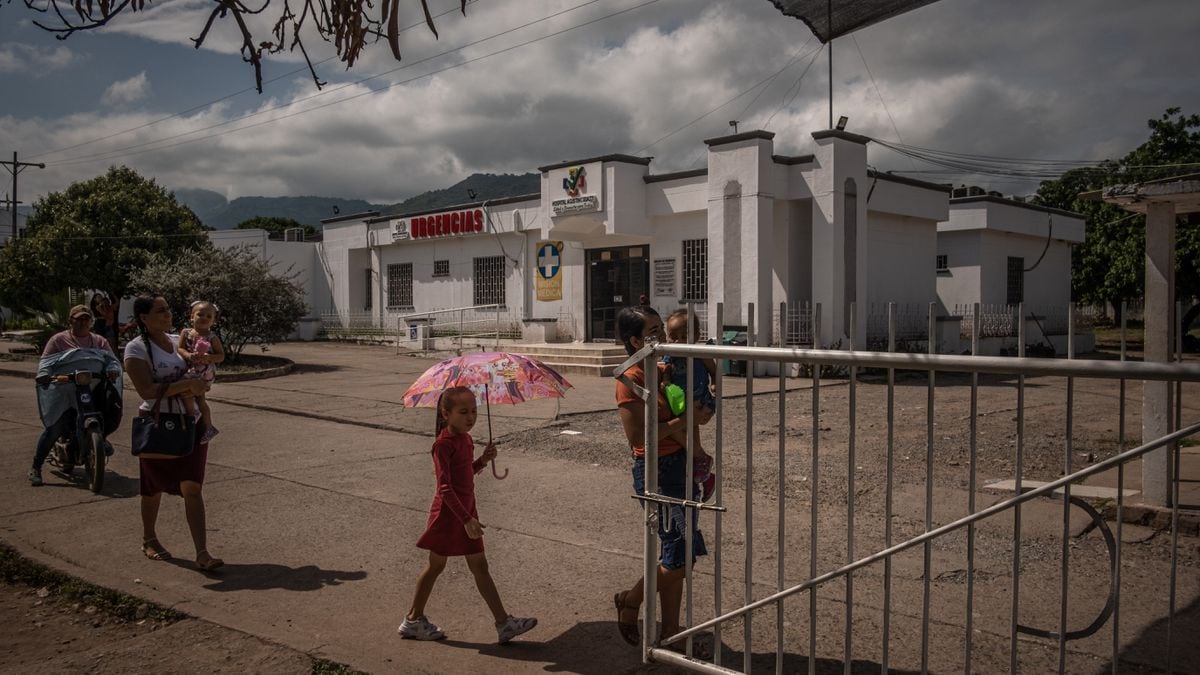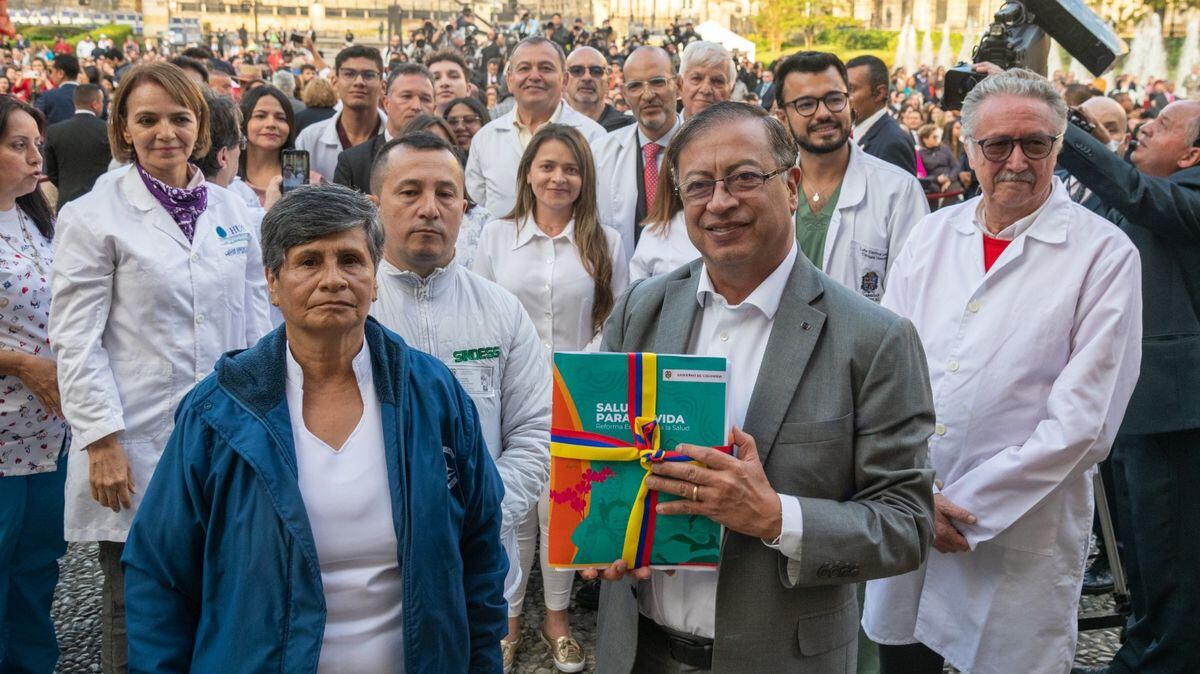The number of migrants who risk themselves in the Darien jungle is increasing 2:54
(CNN Spanish) --
The Government of Colombia formally requested the United States to grant Colombian migrants in the US Deferred Forced Departure status due to the large number of migrants from this country who have arrived in the last year .
The request was recently submitted and the United States Government has not yet ruled on it.
What is Deferred Forced Departure?
Deferred Enforced Departure (DED) is a humanitarian program that protects migrants from being removed from the United States for a designated time, according to the United States Government.
This is not an immigration status, but a humanitarian program.
This program differs from and until a certain date "the removal of any national" of the benefactor country "or person without a nationality whose last habitual residence was" said country, "who is in the United States," says the United States Citizenship and Immigration Services (USCIS) when explaining Liberia's Deferred Enforced Departure benefits.
People from these three countries are driving the increase in migrants at the US southern border.
Thousands of Venezuelan migrants are stranded in Antioquia 3:12
Who would benefit from this program?
The DED is at the discretion of the President of the United States and it is he who defines the conditions on this status.
It can vary in dates, beneficiaries and other conditions, so it is difficult to know which Colombian migrants would benefit from this program.
advertising
"Each presidential directive includes the criteria for a person to be protected by DED and certain exceptions for people who are not protected," USCIS says.
This program can benefit migrants with employment authorization, or even leave the country temporarily, for which a permit from the Department of Homeland Security would be required.
If the DED beneficiary does not comply with this permission, he could be expelled from the country and would not re-enter, says the USCIS.
What countries or territories are benefited by this program?
Three countries or territories have been beneficiaries of this US government program: Liberia, Hong Kong and Venezuela.
Citizens of Liberia have had the DED since October 1, 2007, authorized by President George W. Bush, and it was extended until June 30, 2024. The measure was given because the Temporary Protected Status for Liberia would expire. this year.
It has been gradually extended from 2007 to 2024 in order to allow time for Liberians to "apply for adjustment of status on or before December 20, 2021 under the LRIF extension provision," USCIS says.
Some Hong Kong citizens are also protected under the Deferred Enforced Departure program, including those in the United States until August 5, 2021. Hong Kong migrants are eligible to apply for employment and can also apply for permission to travel abroad. from United States.
Finally, Venezuela was another of the countries that had this protection.
It was initially signed by then-President Donald Trump in January 2021 to defer for up to 18 months the removal of "any national of Venezuela or a person without a nationality whose last habitual residence was Venezuela, who was present in the United States on January 20, 2021".
During this time, Venezuelans were able to access employment permits and were able to leave the country with prior permission.
The DED for Venezuelans ended in September 2022 and the United States government opened the doors for these citizens to apply for Temporary Protected Status (TPS) for 18 months until March 10, 2024.
Venezuelans who filed the TPS application until November 7, 2022 and have not yet received a response, do not have to re-register: if the I-821 form was approved, they will be granted TPS until November 10. March 2024, says the USCIS page.
Government of Colombia formally requests legal protection for Colombian migrants in the US.
File photo. Migrants from Colombia cross the US-Mexico border to turn themselves in to authorities on May 13, 2021 in Yuma, Arizona. (Credit: RINGO CHIU / AFP)
What is the status of Colombian migrants in the US?
According to official figures from the US authorities, the number of migrants arriving from Cuba, Venezuela, Colombia and Nicaragua has increased significantly since January 2021. These four nations account for the majority of encounters between ports of entry throughout from the southwestern border of countries other than Mexico and the Northern Triangle (El Salvador, Guatemala and Honduras).
Between October 2021 and September 2022, more than 120,000 Colombians have been apprehended at the US southern border, according to the Customs and Border Protection (CBP) Agency, an increase of more than 2,000% over the fiscal year. previous, when 6,202 Colombians were found.
Nearly two million Colombians currently live in the US according to the Embassy.
In the case of Colombians, economic instability, aggravated by the pandemic, has been the main driver of migration, but politics is also playing a role.
Rising inflation and unemployment in Colombia are driving more migration, Doris Meissner, director of US immigration policy at the Migration Policy Institute, told CNN.
Social unrest after a wave of protests in 2021 and political divisions that intensified during the recent presidential election are also likely to influence migrants' decisions, she says.
Colombian news









